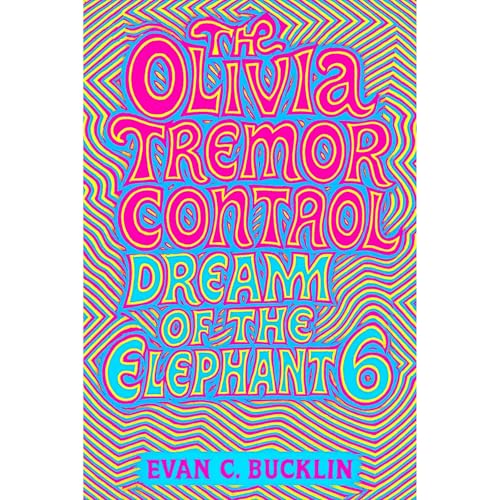
The Olivia Tremor Control: Dream of the Elephant 6
1990s indie psychedelia—covering origins, albums, live shows, side projects, reunions, and enduring legacy
No se pudo agregar al carrito
Add to Cart failed.
Error al Agregar a Lista de Deseos.
Error al eliminar de la lista de deseos.
Error al añadir a tu biblioteca
Error al seguir el podcast
Error al dejar de seguir el podcast
$0.00 por los primeros 30 días
Compra ahora por $6.99
-
Narrado por:
-
Virtual Voice
-
De:
-
Evan C. Bucklin

Este título utiliza narración de voz virtual
In the 1990s, as alternative rock entered the mainstream, a small community of musicians in Ruston, Louisiana, Athens, Georgia, and Denver, Colorado built an underground that valued imagination over commerce. At the center of this movement stood The Olivia Tremor Control, one of the three central pillars of the Elephant 6 Recording Company alongside Neutral Milk Hotel and The Apples in Stereo. Blending Beatlesque harmonies with avant-garde tape experiments, their sprawling albums Dusk at Cubist Castle (1996) and Black Foliage (1999) reshaped the possibilities of indie rock.
This definitive biography, The Olivia Tremor Control: Dream Theater of the Elephant 6, traces the band’s journey from childhood friendships in Ruston through their formation, ambitious recording projects, chaotic touring years, and ultimate dissolution. It documents the contrasting artistic visions of Bill Doss and Will Cullen Hart, whose collaboration and conflict defined the group’s sound: Doss bringing melodic warmth, Hart pushing into surrealist collage. It situates their music within the larger psychedelic revival of the 1990s and early 2000s, while also examining the fragility of Elephant 6’s utopian ideals.
Drawing from press archives, interviews, and cultural histories, the book follows the band’s arc through the hiatus of 2000, the divergent projects of The Sunshine Fix and Circulatory System, and the mythos that grew during their absence. It covers their mid-2000s reunion performances, the halting attempts at a third album, and the tragic death of Bill Doss in 2012, which transformed their legacy into something sacred.
The narrative does not end with their breakup. It explores how their catalog entered the streaming era, how new generations of fans encountered them through algorithms and reissues, and how their myth has been sustained by online communities, critical reassessment, and scholarly inquiry. It places Olivia Tremor Control’s influence alongside acts such as Animal Collective, Of Montreal, and Deerhunter, showing how their fearless blend of pop and experimentation continues to reverberate.
Written in a style that combines archival detail with vivid storytelling, the book captures both the triumphs and fractures of a band that was at once visionary and unsustainable. It is neither hagiography nor exposé but a cultural history with emotional depth, presenting Olivia Tremor Control as the dream theater of Elephant 6—impossible visions briefly realized, still echoing decades later.
For fans of indie rock, psychedelic music, and cultural history, this book offers a definitive portrait of a band whose ambition and imagination transcended the limits of their time.



